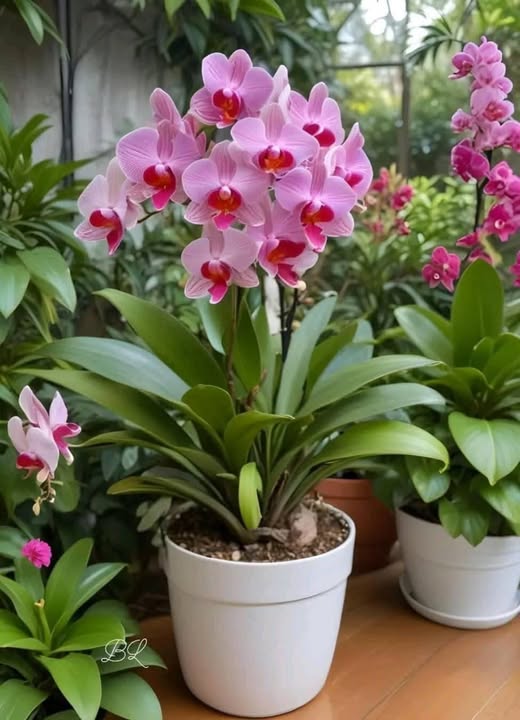ADVERTISEMENT
These orchids prefer a daytime temperature between 70-85°F (21-29°C) and a nighttime temperature between 60-65°F (15-18°C).
They enjoy moderate humidity levels between 40-60%, which can be achieved with a humidity tray or a room humidifier if needed.
Watering:
Dendrobium orchids like to be watered thoroughly but prefer to dry out between waterings. Water them once the top inch of the growing medium feels dry.
Avoid letting the roots sit in water, as this can lead to root rot. Ensure the pot has proper drainage.
Growing Medium:
These orchids typically grow best in well-draining, loose media, such as orchid bark, sphagnum moss, or a mix of both. This allows the roots to breathe and prevents them from becoming waterlogged.
Repot the orchid every 1-2 years to refresh the growing medium and promote healthy growth.
Caring for Dendrobium Orchids:
Fertilizing:
Feed your Dendrobium orchid with a balanced orchid fertilizer once a month during the growing season (spring and summer).
During the rest period (fall and winter), you can cut back on fertilizing to prevent overfeeding.
Pruning:
After the flowers fade, you can prune the flower spikes back to near the base of the plant. However, if you have a cane-type Dendrobium (like Dendrobium nobile), the canes might bloom again the following season, so you may want to leave them intact until the end of the blooming period.
Resting Period:
Some Dendrobium orchids require a resting period to encourage future blooms. After the blooming season ends, reduce watering and fertilizing for a few months. Keep the plant in a slightly cooler and drier environment to mimic its natural winter dormancy.
When new growth begins to appear, gradually resume regular care.
Common Issues and Solutions:
Yellowing Leaves: If your Dendrobium’s leaves are turning yellow, it could be a sign of overwatering or poor drainage. Check that the roots are not sitting in water and ensure the pot has adequate drainage.
No Blooms: Insufficient light or lack of a resting period can prevent flowering. Make sure your orchid gets the proper light and a cooler period to stimulate blooming.
Pests: Aphids, mealybugs, and scale insects are common pests on orchids. If you notice pests, wipe the affected areas with a cotton ball soaked in rubbing alcohol or use an insecticidal soap.
Repotting Dendrobium Orchids:
ADVERTISEMENT
